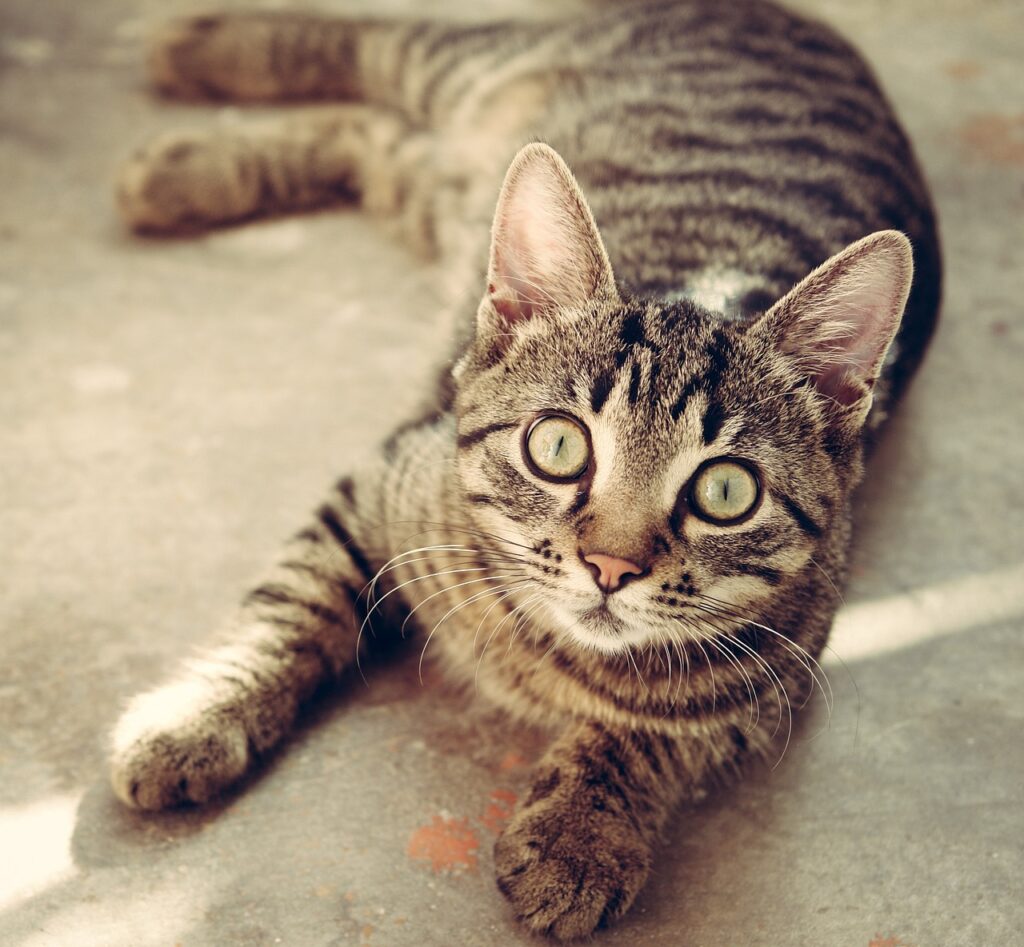Can Cats Eat Peanut Butter? – No, They Can’t
Although peanut butter is not toxic to cats, it’s not an ideal part of their diet. Cats are obligate carnivores, which means the majority of their nutrition should come from meat. Peanut butter does not offer any nutritional benefits for cats and can be hard for them to digest. Additionally, peanut butter often contains additives like sugar and salt, which are not good for cats. There’s also a risk of choking, especially with the sticky and thick consistency of peanut butter. So, it’s best to skip this snack for your feline friend.
Can Kittens Eat Peanut Butter?
Just like adult cats, kittens should avoid peanut butter. Kittens have delicate digestive systems, and introducing peanut butter can lead to upset stomachs or more significant health issues. It’s crucial to stick to a diet formulated specifically for kittens to ensure they receive all the nutrients they need for proper growth and development.
Things to consider when feeding peanut butter to kittens?
When it comes to kittens, their diet should be carefully monitored. Introducing foods outside their recommended diet can lead to nutritional imbalances and health problems. Peanut butter, being high in fats, can contribute to obesity and pancreatitis. Furthermore, choking hazards and the potential for allergic reactions are increased due to their smaller size and less developed immune systems.
Nutritional Benefits of Peanut Butter for Cats – Why Peanut Butter is Not Good for Cats
No Essential Benefits
Cats gain little to no nutritional value from peanut butter. Unlike humans, cats do not require nutrients from sources like nuts and legumes. Their bodies are not adapted to metabolizing plant-based proteins and fats effectively.
Unnecessary Additives
Commercial peanut butter often contains additional ingredients like sugar, salt, and oils that can be harmful to cats. These additives can lead to obesity, diabetes, and other health concerns in felines.
Digestive Issues
The rich texture and high fat content of peanut butter can be tough on a cat’s digestive system, potentially causing gastrointestinal issues such as vomiting or diarrhea.
Choking Hazard
The sticky consistency of peanut butter can pose a choking risk. Cats’ mouths are not designed to handle such dense and sticky substances well.
Allergen Possibility
While not common, cats can be allergic to peanuts. Introducing peanut butter could trigger an allergic reaction, with potentially serious consequences.
Potential Allergies: Can Cats Be Allergic to Peanut Butter?
Although rare, cats can be allergic to components found in peanut butter. As with any new food, it’s crucial to introduce peanut butter in minimal amounts, if at all, and monitor your cat closely for any adverse reactions.
Symptoms of Peanut Butter Allergies in Cats
- Itching and skin irritation: Look for excessive scratching or signs of discomfort in your cat’s behavior.
- Gastrointestinal upset: Keep an eye out for symptoms like vomiting, diarrhea, or loss of appetite.
- Respiratory issues: Watch for any abnormal coughing, wheezing, or difficulty breathing that may indicate an allergic reaction.
What to Do If Your Cat Shows Symptoms?
- Immediate removal of the allergen: Stop offering peanut butter as soon as any symptoms appear.
- Veterinary consultation: Contact your vet for advice. They may recommend treatments to alleviate symptoms and guidance on dietary changes.
- Allergy testing: If allergic reactions are frequent or severe, your vet may suggest allergy testing to identify specific allergens.
Recommended Amount: How Much Peanut Butter Can a Cat Consume?
Given the risks and lack of nutritional benefits, it’s advised not to feed your cat peanut butter. Therefore, no amount is recommended for feline consumption. Focusing on a diet that meets your cat’s carnivorous needs is the healthiest choice.
Things to Consider When Feeding Peanut Butter to Cats
As a cat owner, it is important to ensure that your cat’s diet is safe and nutritious. Peanut butter, due to its potential health risks, should be avoided altogether. Cats will thrive on a balanced diet tailored to their species-specific needs, without the inclusion of human snacks like peanut butter.
How to Feed Peanut Butter to Cats: A Quick Guide
Despite the love we might have for peanut butter, it’s clear that this food is not suitable for our feline companions. Instead, focus should be on providing them with treats that are safer and designed with their dietary needs in mind.
Safety First Treat Option
For a safe treat option, consider small pieces of cooked chicken or turkey. Avoid any added seasonings and ensure the meat is well-cooked to prevent the risk of foodborne illnesses.
Homemade Cat Treat
Create your own cat treats at home using simple ingredients like salmon, pumpkin, or sweet potato. These can be baked into small bits perfect for your cat to enjoy responsibly.
Cat-Friendly Commercial Treats
Specially formulated commercial cat treats are readily available and designed to be both safe and enjoyable for cats. Always read the labels to ensure they contain healthy ingredients and no harmful additives.
Conclusion
To sum up, peanut butter is not a recommended treat for cats due to its potential health risks and lack of nutritional benefits. Sticking to a balanced diet and safe treats designed for cats is the best way to keep your furry friend healthy and happy. Remember, what’s tasty for humans isn’t always suitable for our feline pals.



